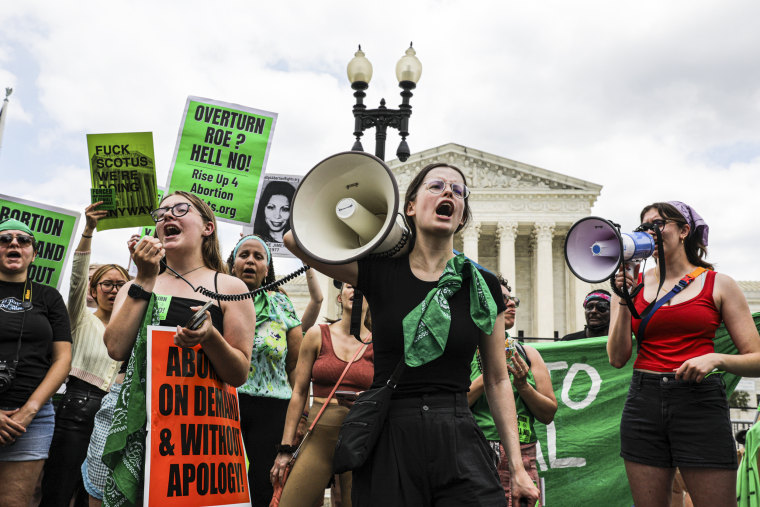The Supreme Court on Friday issued its final opinion in a case that overturns Roe v. Wade, the ruling that has given women the constitutional right to an abortion for nearly 50 years.
In delivering the opinion of the court’s conservative majority, Justice Samuel Alito wrote that the 1973 Roe decision was “egregiously wrong and on a collision course with the Constitution from the day it was decided.” His arguments were also made in a draft opinion that was publicly leaked in May, an unprecedented breach that has galvanized abortion rights supporters and their anti-abortion opponents.
Legal experts say the language in the official version does not significantly diverge from Alito’s draft. While the justices voted 6-3 to uphold a Mississippi law banning abortion after 15 weeks of pregnancy, Chief Justice John Roberts wrote in a separate concurring opinion that he does not support the full repeal of abortion rights.
In their dissent, the high court’s three liberal wing justices — Stephen Breyer, Elena Kagan and Sonia Sotomayor — took aim at the majority’s “draconian” ruling as a decision that will curtail women’s rights and their “status as free and equal citizens.”
Both sets of justices made compelling arguments that legal experts say will set off fierce constitutional debate. Among those key takeaways are:


